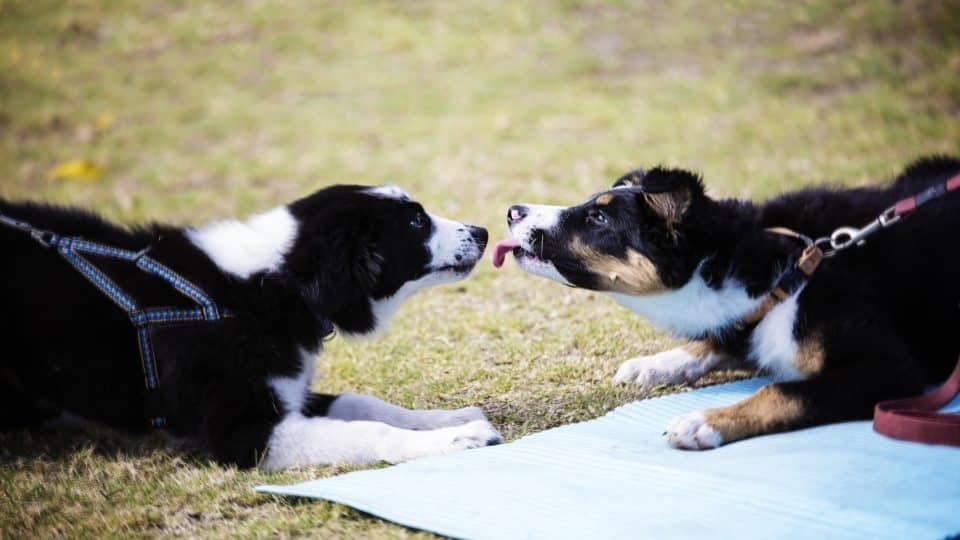
Can Dogs Fall In Love With Other Dogs?
The bond between dogs is often described as special and unique, leading many pet owners to wonder if dogs can experience love for each other. While dogs certainly form strong attachments and bonds with other dogs, whether these relationships constitute love in the same way humans understand it is a topic of debate among experts.
Can Dogs Form Romantic Attachments?
Understanding Canine Relationships Dogs are social animals that thrive on companionship and interaction with other dogs and humans alike. They form complex social hierarchies within packs and establish strong bonds with their pack members.
Signs of Affection Dogs show affection and attachment to other dogs through various behaviors, including licking, grooming, playing, and cuddling. These interactions serve to reinforce social bonds and strengthen relationships within the pack.
Factors Influencing Dog Relationships
Socialization Early socialization plays a crucial role in shaping a dog’s ability to form relationships with other dogs. Puppies that are exposed to positive experiences with other dogs during their critical socialization period are more likely to develop healthy social skills and form strong bonds with other dogs later in life.
Individual Temperament Each dog has a unique temperament and personality that can influence their ability to form relationships with other dogs. Some dogs may be more outgoing and sociable, while others may be more reserved or selective in their interactions.
Love or Attachment?
Defining Love in Dogs While it’s challenging to determine whether dogs experience romantic love in the same way humans do, they undoubtedly form deep emotional attachments and bonds with their canine companions. These bonds may be based on mutual trust, companionship, and shared experiences rather than romantic love as humans understand it.
Companionship and Loyalty Dogs are known for their unwavering loyalty and devotion to their human and canine companions. They form strong emotional connections with those they spend time with, providing comfort, support, and companionship.
While the concept of romantic love may be uniquely human, dogs are undoubtedly capable of forming deep emotional connections and bonds with other dogs. Whether it’s playing, cuddling, or simply enjoying each other’s company, dogs demonstrate affection and loyalty in their relationships with their fellow canines, enriching their lives and ours in the process.
Your pets’ happiness and your peace of mind are our top priorities.
Frequently Asked Questions
While dogs may exhibit behaviors that appear to be jealousy or possessiveness, it’s essential to understand that these emotions are complex and may not be experienced in the same way humans do. Dogs may display protective behaviors or become territorial in response to perceived threats, but it’s not necessarily indicative of jealousy in the human sense.
Yes, dogs are capable of forming bonds with a variety of animals, including cats, horses, and even humans. The key factors in forming these relationships are socialization, positive experiences, and mutual respect between the animals involved.
Gradual exposure to other dogs in controlled environments, such as obedience classes or supervised playdates, can help your dog develop social skills and confidence around other dogs. Positive reinforcement training and rewarding calm, friendly behavior can also encourage positive interactions.
If your dog displays aggressive behavior towards other dogs, seek guidance from a professional dog trainer or behaviorist. They can help identify the underlying causes of aggression and develop a behavior modification plan to address the issue safely and effectively.
While individual temperament plays a significant role in a dog’s ability to form relationships with other dogs, certain breeds are known for their sociable and friendly nature. Breeds such as Golden Retrievers, Labrador Retrievers, and Cavalier King Charles Spaniels are often considered to be particularly social and outgoing with other dogs.
Yes, dogs can experience grief and sadness in response to the loss of a canine companion. They may exhibit behaviors such as decreased appetite, lethargy, or vocalization in mourning. Providing comfort, routine, and extra attention during this difficult time can help support your grieving dog.